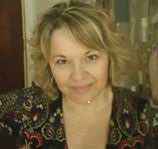Disability Practice in the Spotlight
On The Campus Beat

Donna-Marie Thompson brings a strong commitment to social justice and advocating for the rights of others to her current position as the Disability Support Coordinator at the Springfield Campus of the University of Southern Queensland (USQ). She approaches this role with knowledge that each student is a genuine individual, and works to build on their strengths and capacities. Equally as important, Donna-Marie is adept at identifying gaps in services and developing initiatives to fill those gaps. And in turn the role provides her with new opportunities. “It’s been a roller-coaster ride – but an exciting one”.
Prior to this role Donna-Marie worked in the criminal justice system, including six years as a Police Officer in Victoria, and four years supporting victims and offenders of crime in Queensland. This included advocating for offenders with disabilities and mental health conditions for a community legal service. “Together these roles gave me a curiosity about people’s behaviours, and an awareness of the lack of recognition and understanding of disability and mental health in the court system”. This inspired her to gain a Psychology degree, and in 2016 she will undertake a Masters in Clinical Psychology. “I have an intrinsic love of learning, and it’s great I can apply what I learn directly to my work, and see the difference it can make”.
Donna-Marie applied for the Disability Support Coordinator role as she was motivated to take on a new challenge in a new environment. Since commencing in the role three years ago, there has been a substantial increase in the number of students with disability seeking support across the University, and especially at her campus. In particular there has been an increase of students with complex mental health concerns, and students on the autism spectrum. She also sees many students with learning disability and ADHD. “So I spend most of my time working with students with hidden disability, and educating staff on the impact of these on their studies”. “Whilst there is a growing awareness and understanding of these in the general community, I still find a lot of hesitancy and fear within the student community to seek support”.
“But I am motivated by the incredible students I support and observing their ability to thrive and deal with challenges despite systemic obstacles.” And she is committed to challenging and changing the sometimes negative perceptions of disability, and the rights of students to an equitable learning environment. And as a change-agent she is committed to trying new things to meet the needs of students.
“When I see a gap, I ask – how do I fill this gap?” So when a student on the autism spectrum came to Donna-Marie in tears, expressing his loneliness, and wondering how he could meet other students like himself, a peer-mentoring study skills program evolved. The A-Skills 8 week program is promoted as a study skills program that provides students with ASD the opportunity to develop strategies to achieve their personal study goals, and increase their autonomy, competence and well-being. It also enables connections to other students with ASD. She felt very honoured to be able to present this program at the last Pathways Conference. The program has since been rolled out to two other campuses of the University, and Donna-Marie has been supported to work with Dr Charlotte Brownlow to conduct a quantitative and qualitative evaluation of the program. They are also working together to co-author a chapter for an international textbook on neuro-diversity in education.
The importance of relationship building is essential for the role. Donna-Marie appreciates the team of supportive staff and management at USQ, as well as the opportunity to develop great relationships with academics. “Don’t underestimate the value of developing relationships with academics, administrative and professional staff throughout the university…they will be key to promoting change.”
She also regularly attends the Ipswich Disability Network, and her involvement can provide a level of confidence in the local NGOs that clients they refer to USQ will be well supported. As a member of the Queensland Disability Liaison Officer Network she always welcomes the opportunity to catch up with other tertiary practitioners. As a new practitioner she felt warmly accepted and supported in the role, and knows the importance of sharing wisdom and experience with other practitioners, with a positive and open approach.
“We shouldn’t lose sight of each student as an individual with specific strengths and difficulties. I recognise that practitioners can become overwhelmed by the numbers of students requiring support (particularly at the beginning of a semester), but try not to fall into the trap of prescriptive support rather than tailoring to the individual.”
“Whilst compassion and empathy are valuable traits in the sector (thankfully) they need to be balanced with overcoming the temptation to ‘over-support’ a student.” “Ultimately we are supporting the students to become independent and valuable future employees and members of the community. Encouraging autonomy through appropriate support will build resilient and competent students rather than promoting dependence and learned helplessness.” She would like to see the development of more proactive supports that build on student’s strengths and fosters this competence and resilience.
Another vision for the future is universal design within schools, colleges and universities accepted as the norm. She has been involved in hosting presentations for staff on supporting students with disability, but knows it is important to capture all staff. Therefore she is pleased that USQ is in the process of releasing a USQ specific version of Heads-Up and hopes it becomes a compulsory package for all staff.
Life away from the University is spent in her eco-pod built from environmental sustainable material. The back deck looks out on the trees on her one-acre property, and she welcomes the birdlife, local possums and other natural visitors. A great place to sit after work with chocolate, cheese and G&T’s. And when not immersed in the never-ending study of psychology she spends time with her family, two dogs, and enjoys meditation.

